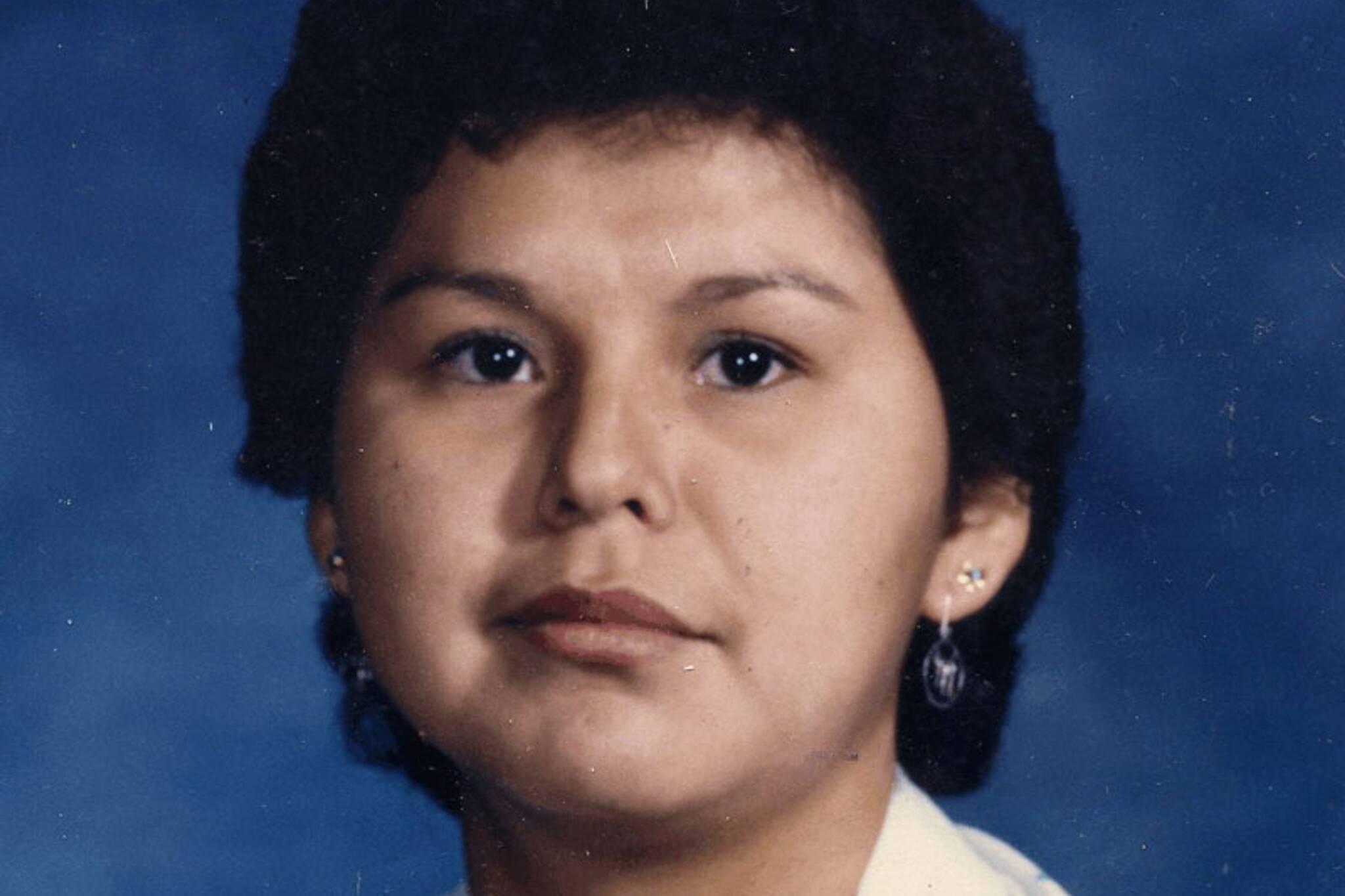It has been 34 years since Alberta Williams went missing, after being seen last at the old Popeye’s bar in Prince Rupert in the early hours of Aug. 26 1989. More than three decades later, the murder still looms large over the region as a stark reminder of the dangers Indigenous women face in northern B.C.
Alberta’s body was found by hikers near Prince Rupert in September 1989 along Highway 16, known by many as the Highway of Tears for the frequent Missing and Murdered Indigenous Women and Girls cases along the remote route.
Alberta’s sister Claudia Williams, who was with Alberta the night she went missing, is continuing to search for answers.
“Her spirit is alive, you just have to keep working on it,” she said. “Justice is justice, nobody deserves to be killed in any way.”
As youngsters, the sisters and their families moved around B.C. frequently, living at one point in Prince Rupert. When the murder occurred, both Claudia and Alberta, who were very close, worked at a nearby B.C. Packers fish cannery that summer.
Claudia, whose relationship with the RCMP has been fraught in the past, said she is very disappointed the case has not yet been solved, though she recognizes that the investigation is incredibly complex.
“I do have to say that they are working on it. There are some huge stumbling blocks. It’s a very delicate matter and it’s a matter of handling it properly in order to get the answers that we want for Alberta, rather than handling it improperly.”
Project E-Pana was set up in 2005 as an arm of the RCMP Major Crimes Unit. The unit focuses specifically on 18 unsolved missing and murdered cases, spanning from 1969 until 2006, along the Highway of Tears.
There was initially some hesitation from Claudia to allow Alberta to be classified as an E-Pana case, as the designation for those cases were “high-risk behaviour,” such as hitchhiking or sex work, neither of which Alberta had done. However, Claudia determined that the extra publicity was key to finding justice for her sister.
“Alberta grew up with caring and loving parents that she didn’t fit the profile of some of the missing and murdered women,” Claudia said. “But then again I thought about it some more and I thought ‘now what am I saying here?’ Some of them just went out. They didn’t have a profile. They’re not identical profiles.”
For Symbia Barnaby, a local nurse and advocate for Indigenous rights, Alberta’s and other Highway of Tears victims’ cases are a reminder of how dangerous it is to be an Indigenous woman in remote northern B.C. A mother of five daughters, Barnaby worries about the dangers they could face while growing up.
“The girls have disabilities, it puts them at higher risk of being abused or being behind the violence. Every risk factor that could put them at risk is there.”
While the unsolved case has been incredibly challenging for Claudia, she said her fighting spirit keeps her going.
“I’ve always been the go-getter in the family.”
Sgt. Ron Palta, an investigator at the E-Pana unit, said that Alberta’s murder, like other Highway of Tears cases, is still actively being investigated. Palta pointed out that many older cases such as Alberta’s are solved through help from the public.
“We like to remind people that the police are still investigating this case. We’re still looking for new information,” Palta said. “Of course, our tip line number is for people to get in touch with us with anything they have, regardless of how small or inconsequential they think it might be.”
Some cases have been solved after over 40 years, according to Palta.
Barnaby argues that while MMIWG cases such as Alberta’s are further from the public spotlight, there’s still much to be done to ensure Indigenous women are safe. Keeping resources such as shelters and transition houses well-funded in more remote regions is extremely important to reducing risk factors for Indigenous women, according to Barnaby.
“If somebody was fleeing violence, that is one of the risk factors for somebody to be murdered or to go missing,” she said. “We need to be making sure that support system, those wrap-around services are actually hearty and present in northern, remote communities, not just the inner city.”
North Coast MLA Jennifer Rice took the opportunity to pay her respects to Alberta and her family on the Aug. 26 anniversary of her going missing.
“On the anniversary of when Alberta Williams went missing, I’ll be thinking of her and her family.”
There have been recent initiatives to bring more resources to remote communities such as increased cell service and driver’s licences courses, Rice said.
Barnaby said that while there’s the low-cost bus through the Friendship House of Prince Rupert and the increased cell service between northern communities, there are deeper cultural issues that need to be addressed.
“It’s not just provincial structural things, right? It’s also community-led and community-based healing,” Barnaby said. “It can’t just be ‘we put a bus, so we’ve checked the box, we’ve done our duty.’”
Like Palta, Claudia is hoping someone in the public speaks out so the case can finally be solved. A popular CBC podcast by Connie Walker called “Who Killed Alberta Williams” has helped bring the case back into public discourse, according to Claudia.
For Claudia, the case should remain in the public’s eye for a variety of reasons.
“The public should care because it could be your own family member. It could happen today,” she said. “Not only that, if it doesn’t come to an arrest and the person walks around, how safe is the public? It’s a safety matter. It’s also for justice, that’s what we’re supposed to believe in.”
The RCMP encourage anyone with information on Alberta Williams or any other E-Pana cases to call their tip line at 1-877-543-4822.

